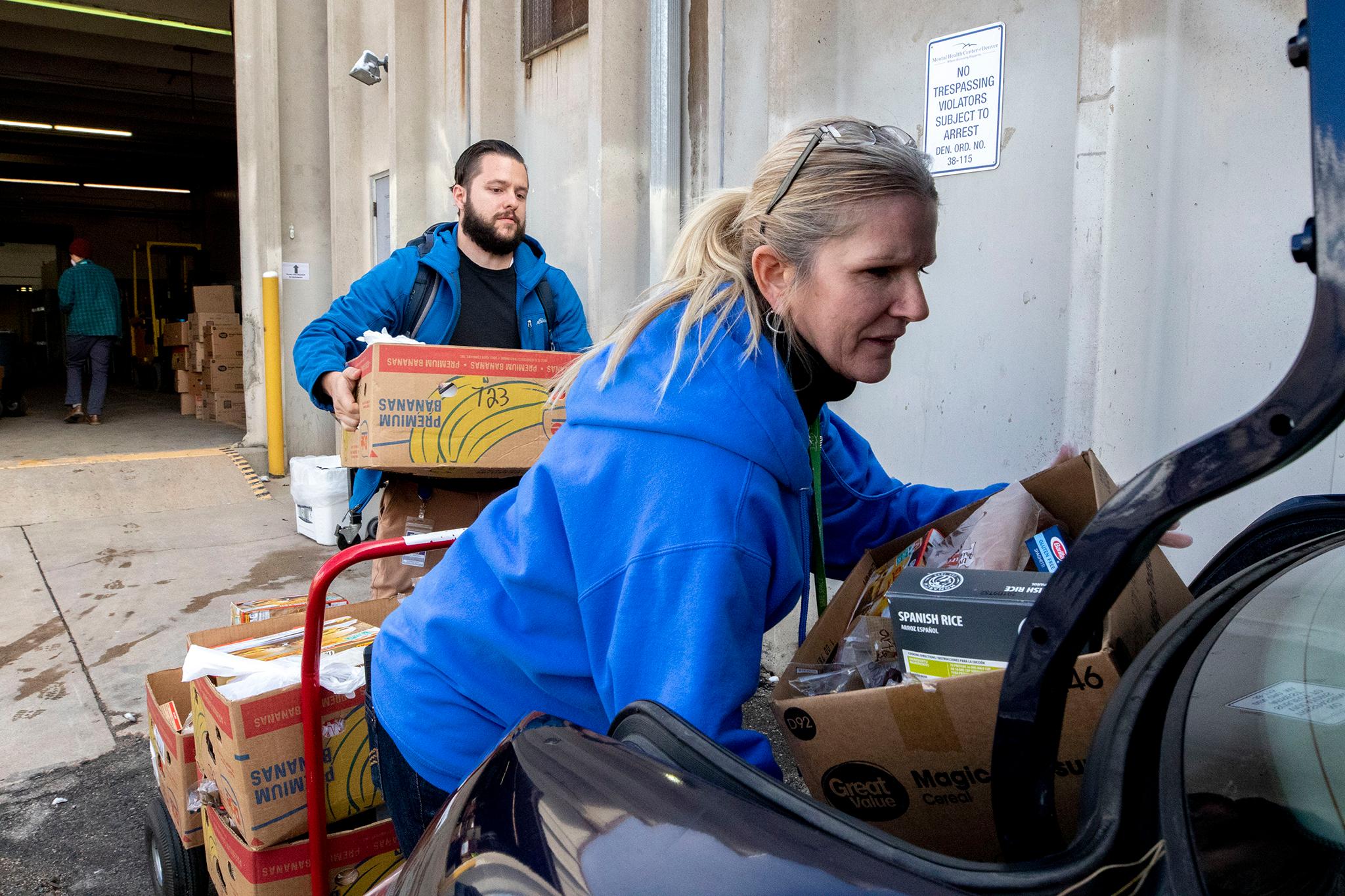As a Mental Health Center of Denver case worker, Evan Robertson's job has involved a lot of driving.
The licensed counselor has chauffeured clients to government offices to help them apply for driver's licenses or food stamps or to replace a lost birth certificate. Along the way, Robertson would take the opportunity to try to draw his passenger out about what he or she might be struggling with -- anxiety, concern about relapsing into alcohol or drug abuse. He calls it "car counseling. Do it on the way to Social Security."
Many of the offices he used to visit with clients have closed in recent weeks as part of attempts to keep people away from one another to slow the spread of the new coronavirus. But Robertson, whose nonprofit is dedicated to providing mental health and other support to the community, is still driving.
On Friday, Robertson pulled his blue sedan into the alley behind the Mental Health Center of Denver's Adult Resource Center, at 1075 Galapago Street, behind West High School. Candy Rountree, a vocational supervisor, helped him load his trunk with cardboard boxes filled with a week's supply each of nonperishable food and other items. Robertson and Rountree joked about playing Tetris to fit them all in. Robertson then filled plastic sacks with fruit and containers of yogurt and added those to the trunk.
Once the car was stocked, he drove to Colfax and headed west to the first of five stops, an apartment complex near the Lamar light rail station on RTD's W Line. After parking, Robertson pulled out his mobile phone and called Juan, a Mental Health Center of Denver client who only wanted Denverite to use his first name.
A smiling Juan came down to meet Robertson at the front door and collect his share of the groceries.
Normally, Juan said, he'd choose his own groceries from the food pantry at the Adult Resource Center.
"I go on Fridays, and it helps a lot," Juan said. "Now, it's coming to me."
He glanced at Robertson and added, "and I thank you."
Robertson wore gloves and a face mask. He said the mask was a bit uncomfortable. "But I don't want to expose Juan to anything," he said.
As Robertson left to head to the next delivery, he and Juan mimed a fist bump, gesturing across six feet of air.
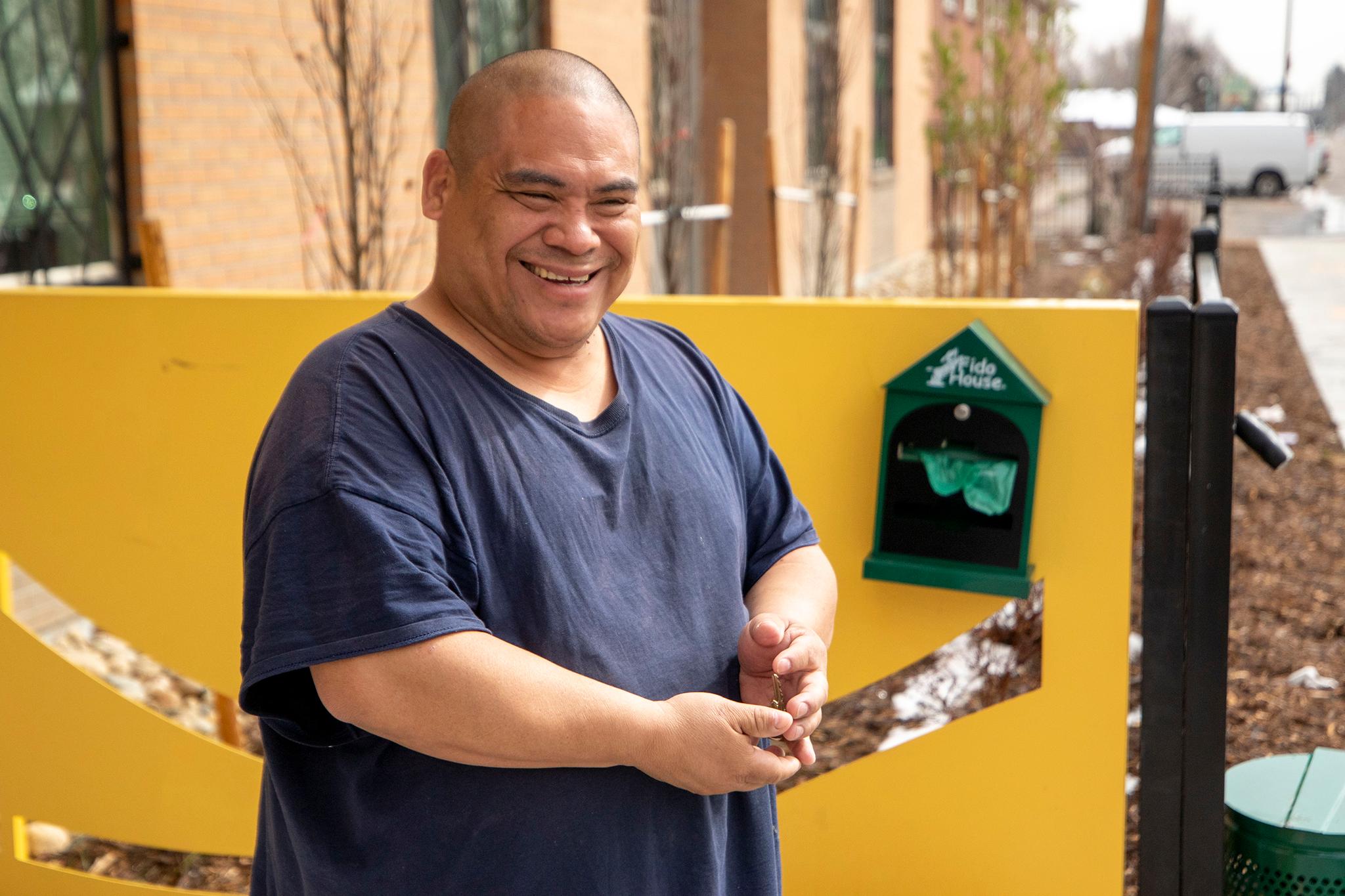
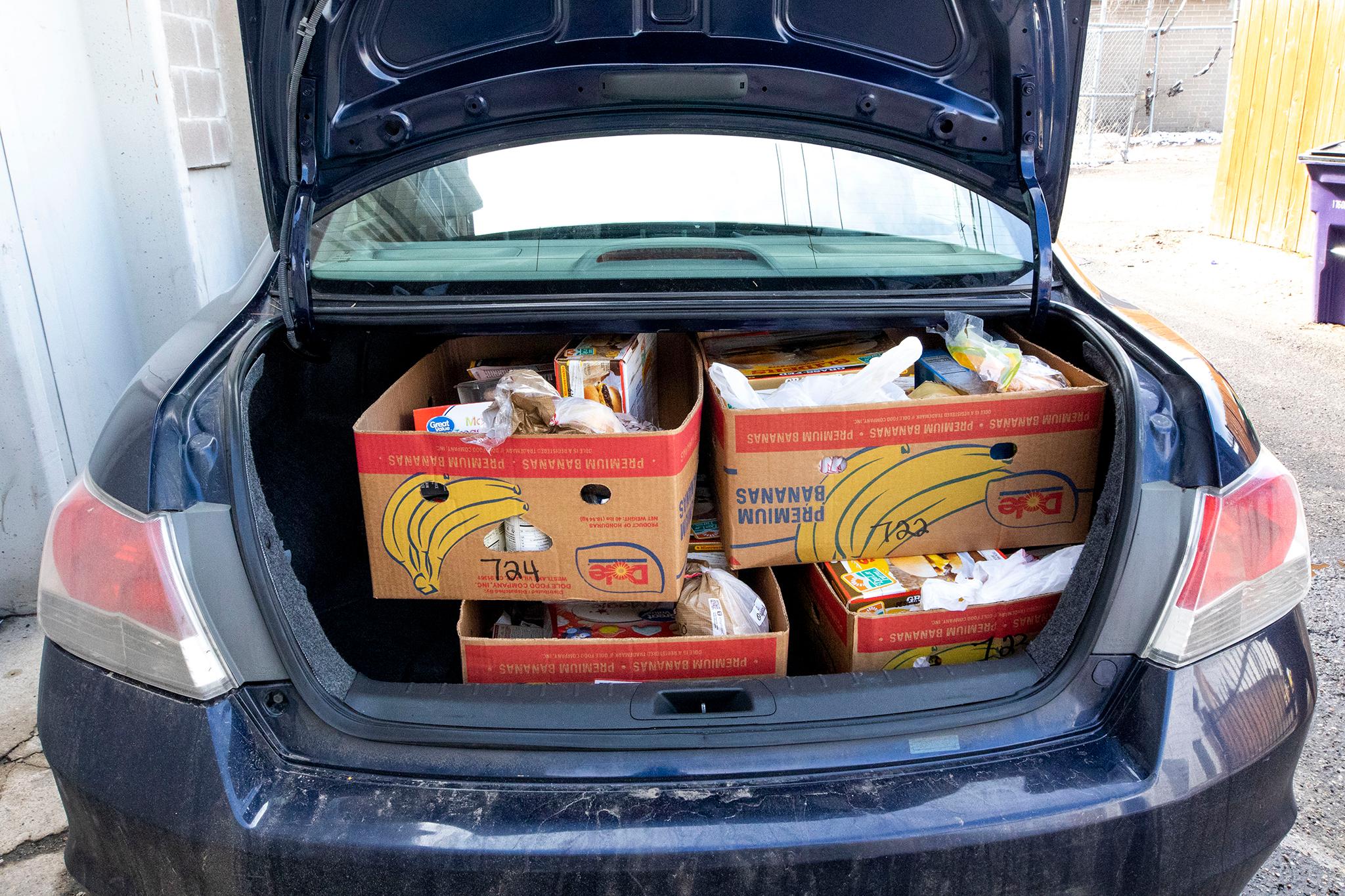
The pantry on Galapago closed to all but staff and volunteers in response to the coronavirus outbreak. Other local pantries have taken similar steps, but instead of delivering food, many are distributing boxes to people who line up outside. The Mental Health Center of Denver's deliveries, which include runs from its pharmacy to clients, goes one step further.
Clients are "able to stay home, stay safe, stay away from other people who might have been exposed" to the coronavirus, Robertson said.
His job normally involves encouraging clients to be independent, including helping them navigate public transportation. But these are not normal times.
Zaharo Hilentzaris, program manager at the Adult Resource Center, said the goal was to keep clients, staff and volunteers safe while continuing to provide services.
The Adult Resource Center can also send clothing, wheelchairs and other necessities from its store of donated item. Many people ask for toilet paper.
"Toilet paper is extremely difficult. We're trying," Hilentzaris said. "We're lucky we still have soap, which has been a hot item lately."
Food comes from the Food Bank of the Rockies and grocery stores. Donations have been dwindling, Hilentzaris said. Other organizations have reported similar difficulties, in part because people with the means to do so have been stocking up, leaving grocery stores with little of the excess they once sent to organizations that serve the needy.
"When you're on public assistance, you're not able to stock up," Robertson said.
The Galapago site also has a temporarily shuttered drop-in room that in normal times offers clients computers, a pool table, and a place to practice yoga class or just relax. A hot breakfast and lunch was available daily at the drop-in room.
A white board above the reception desk still announces the last menu: macaroni and cheese, peaches and mixed vegetables.
Since March 16, staff and volunteers have prepared sack meals that clients can grab from a box outside. Facilities will remain closed until April 30, when the nonprofit will determine how to move forward.
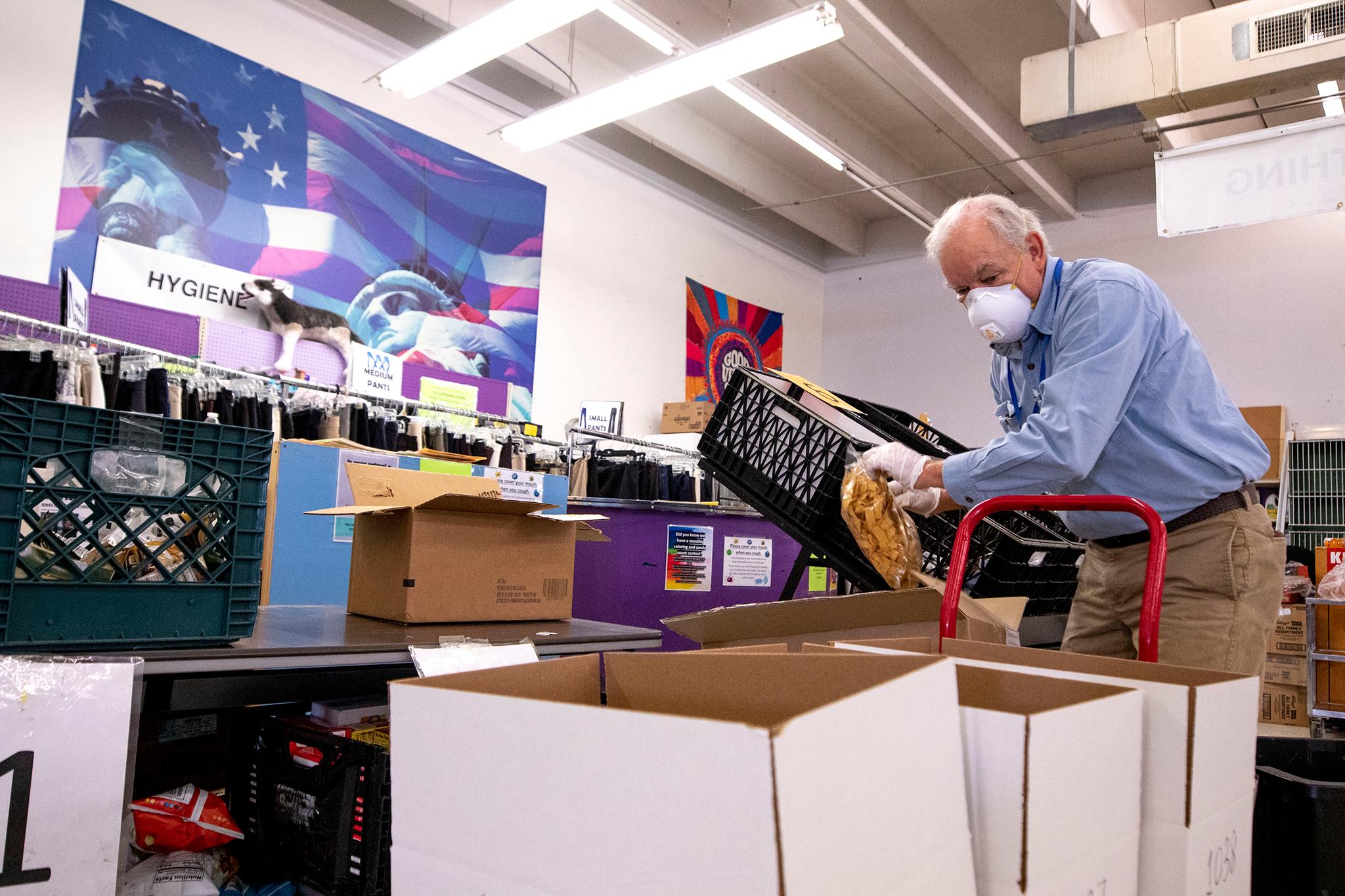
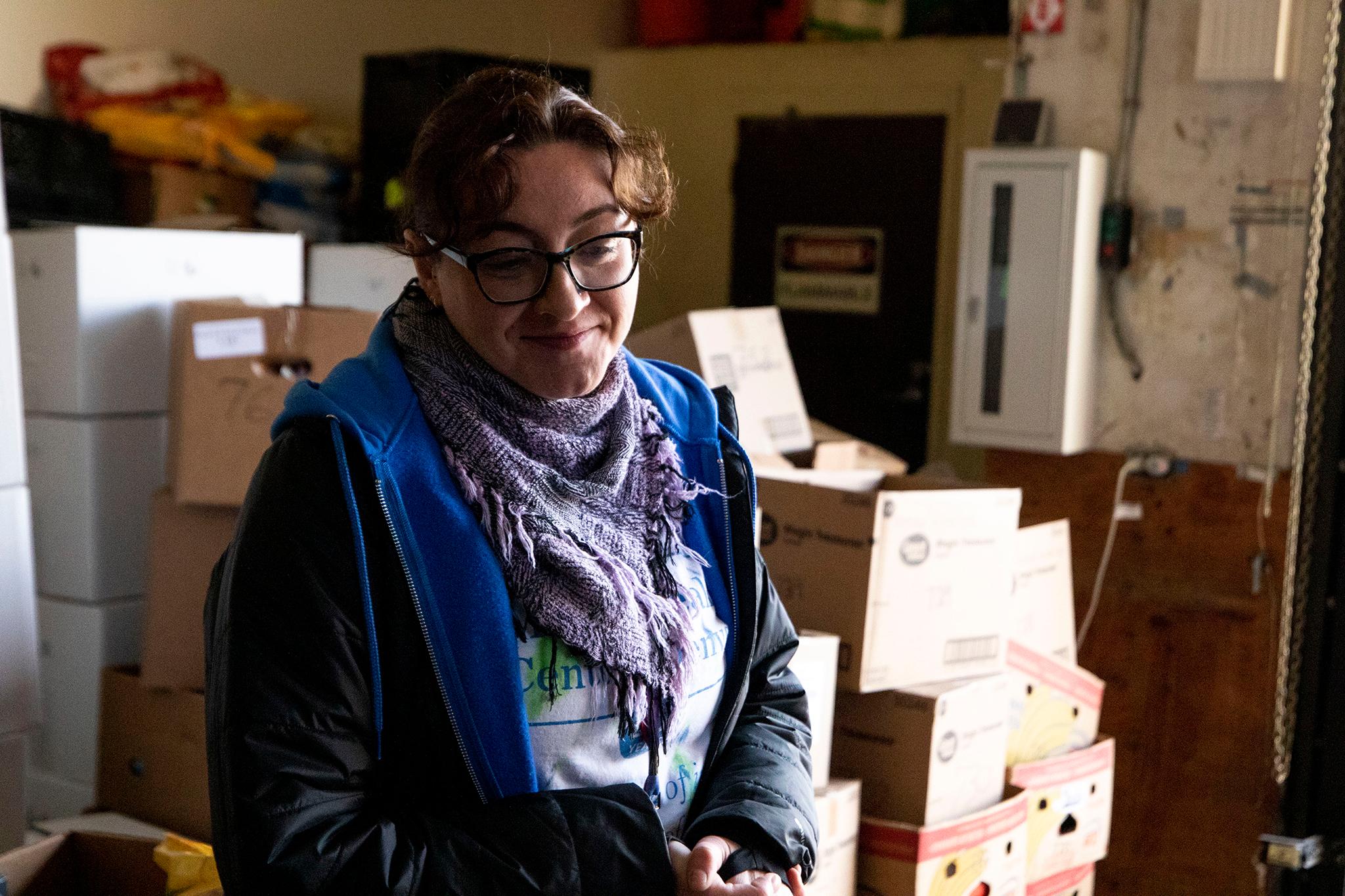
Mental Health Center of Denver therapists have switched from in-person sessions to phone or video calls. The nonprofit's 2Succeed vocational rehabilitation program has gone online with its computer training, college readiness and other classes. But there's only so much that can be done at a distance.
Robertson and other case workers who have been making the food and medication deliveries take the opportunity to check in with clients and encourage them to keep in touch with their therapists and on top of their medications.
"It's great to still stay connected, especially in these times," Hilentzaris said.
Robertson said many of the clients he's encountered seem stressed.
"Some of them definitely have some anxiety about going out, some anxiety about not being able to get food," he said.
Two clients to whom Robertson made deliveries Friday are living in an East Colfax motel. They were out when he arrived.
As the motel manager opened their rooms so the supplies could be dropped off, Robertson asked when the rent, which the Mental Health Center of Denver pays, would be due.
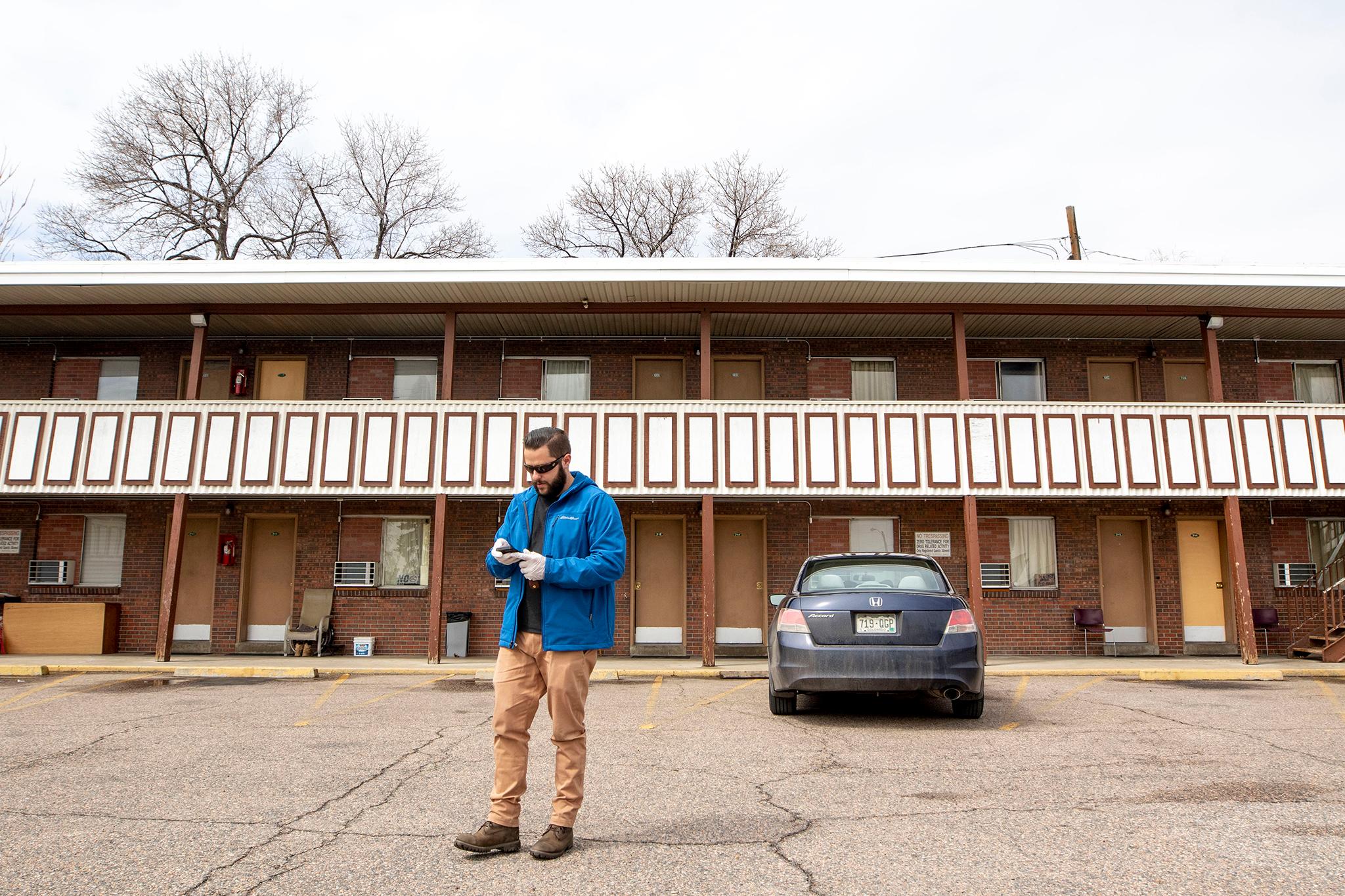
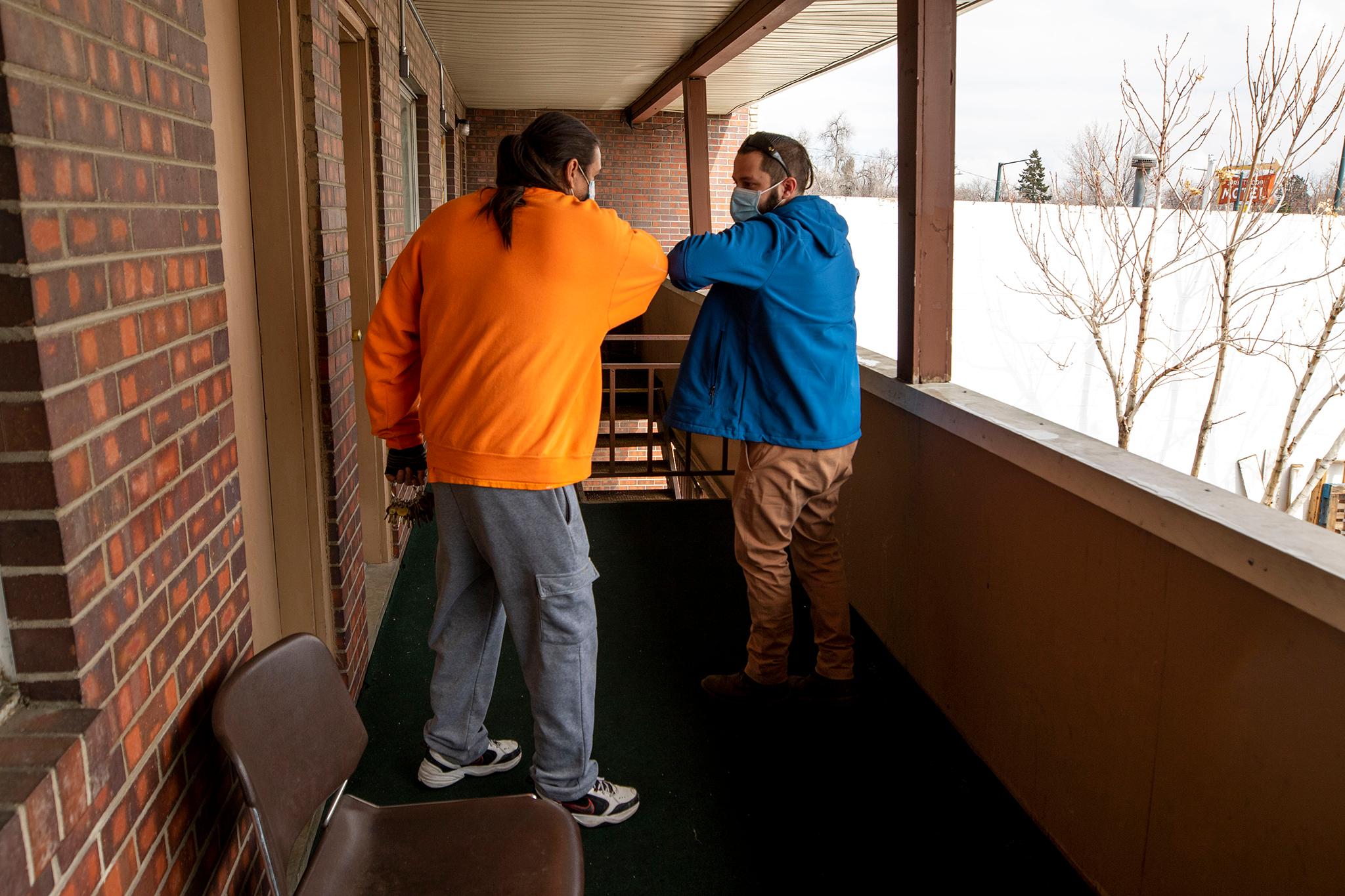
Robertson's route on Friday took him from West Colfax to Highland to East Colfax. Traffic was light on normally busy thoroughfares.
"I've never seen Denver so quiet," Robertson said.
Organizations supporting struggling communities are exempt from the governor's stay-at-home orders, which has allowed Robertson to travel around town freely.
"It's nice to know if I'm needed, I can go out and help someone in the community," he said.

